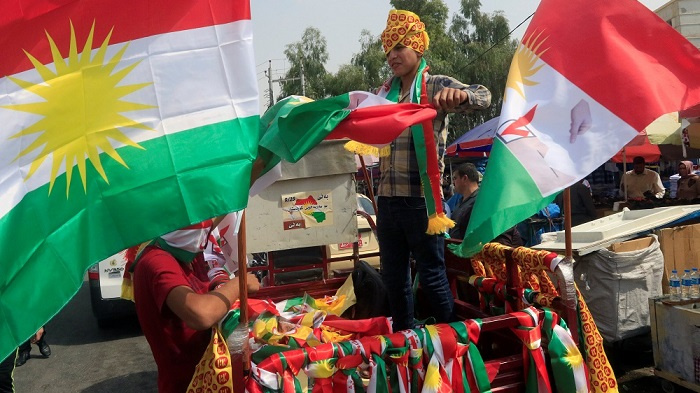Why Iran Should Back Kurdish Independence Bid

The recent years have seen a long list of secession campaigns and formation of new countries. These include Timor-Leste’s 1999 independent from Indonesia and South Sudan’s star-crossed 2011 independence from Sudan. Even in closer vicinity of Iran, Nagorno-Karabakh Republic’s independence came in 1991 (only recognized by Armenia but represented in Washington). In 2008, Abkhazia, then occupied by Russian forces, held a referendum and declared independence from Georgia. Russia established diplomatic ties with the new country. Most probably driven by close ties with Russia, Iran declined to take positions.
In the UK, Scottish Parliament called for an independence referendum before Brexit. Spain’s Catalonia is also on its way to independence. In 2014, Crimea was annexed to Russia after a referendum under Russia’s occupation. Iran did not object, on the basis that it had no shared border, plus the fact that Russia was the main player. How about the Nagorno-Karabakh Republic in our region, then?
In case the Iraqi Kurdistan’s referendum leads to the declaration of independence, it would be a landlocked country. If none of the neighbors, including Iran, Turkey, and Iraq endorse the independence, leaving the country with no international recognition but that of Israel, Kurdistan could hardly contact the outside world with closed borders. They will have no links whether on land or in the air.
The Secretary of Iran’s National Security Council Ali Shamkhani has announced that Tehran will close all borders to the Kurdistan Region in case of independence. While this might be a very crucial move, Iran’s economic ties with Iraq, annually over $6b, with a large part of it coming from trade with the Kurdistan region, will suffer. What happens to exporters, importers, and jobs depending on the ties is not clear yet.
Kurdistan has been practically independent ever since the Second Persian Gulf War, when Western coalition forces led by the US established no-fly zones in northern Iraq. Iran welcomed the autonomy of Kurdistan then and established economic ties. Even at that time, the Iraqi Kurdistan did not obey the central government under Saddam Hussein.
The Iraqi Kurds have struggled for autonomy and independence for years. Iran is a neighbor with which the Kurds have had the best foreign ties. Since 2003 when the US occupied Iraq, the Kurds engaged in close cooperation with the superpower, helping it settle in Iraq. In the fight against ISIS in Sinjar, Germans poured arms into Kurdistan on the pretext of protecting the region. Iran declined to object at that time.
Tehran's approach to the Kurdish referendum has been negative: we wanted to prevent the referendum at all costs. What will Iran do now that the referendum is held? This is a question to be answered.
Iran’s western and eastern neighbors lack a powerful central governments that are popular and legitimate to all citizens in order to run the national affairs. Iraq is not a country in essence, because there have been conflicts ever since its establishment and it has never seen unity. This is why the Kurds, Iranian by origin, want to determine their own destiny as a country. True that concerns about likely post-referendum unrests threaten the whole region. However, an independent Kurdistan with close ties to Iran could be a weight to create balance between Iran and the Arab world. This needs a reconsideration. Kurdistan has been a state for years and the Kurds have come to believe in it. Iran could be their only supporter, of their own blood. Otherwise, Israel and the US are there to fill the gap. Even Russians would not be very happy with a powerful Iran, which they cannot stand.

